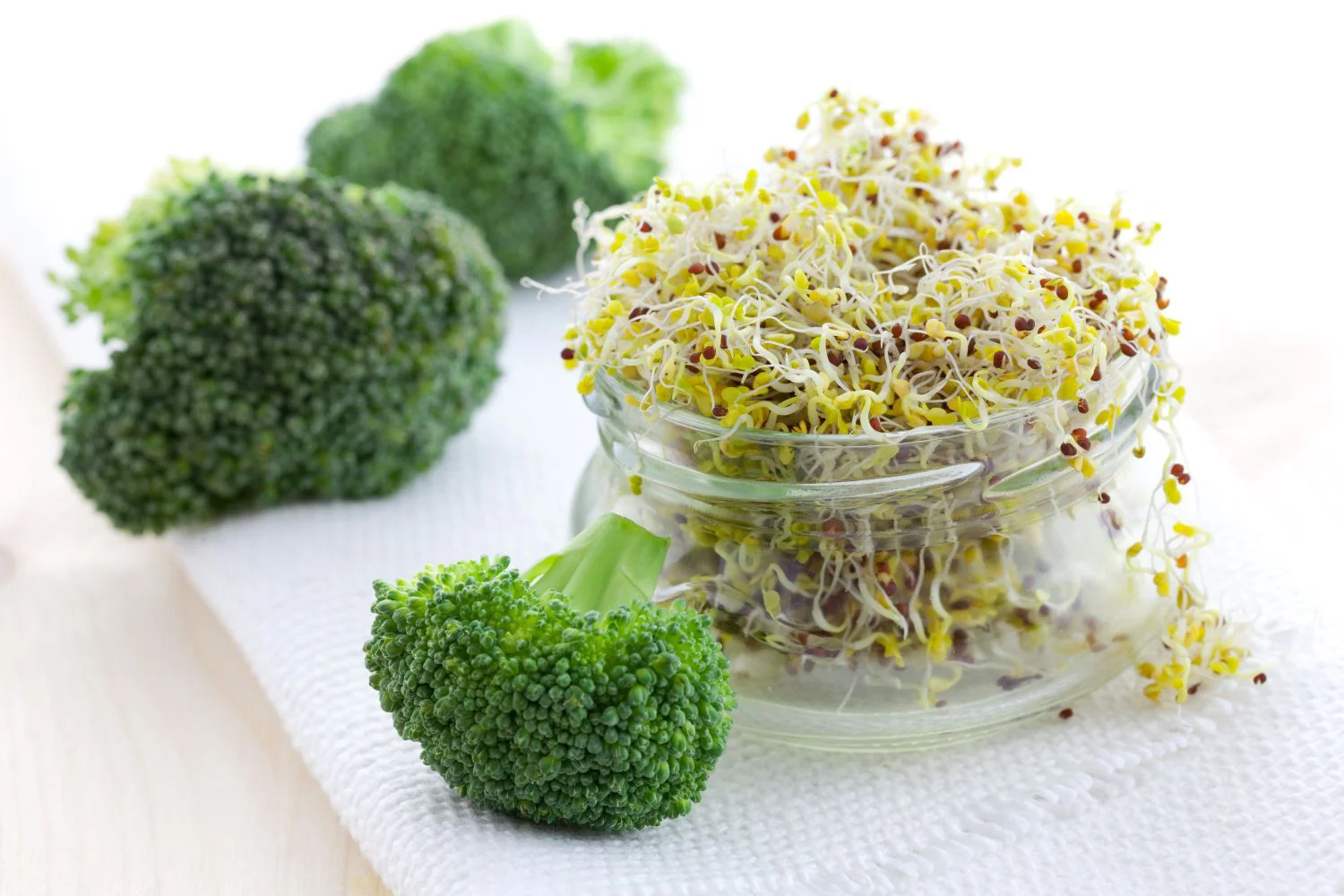Autism Spectrum Disorder (ASD) affects millions of children and families worldwide, prompting ongoing research into therapies and interventions. Amid traditional treatments, broccoli sprouts have emerged as a surprising yet promising natural tool for autism management.
The growing interest in Broccoli Sprouts for Autism highlights their potential as a complementary approach to traditional interventions.
These nutrient-packed sprouts may offer antioxidant and anti-inflammatory benefits that can complement advanced interventions like stem cell therapy for autism.
This article explores the potential of broccoli sprouts for autism, highlights their scientific basis, and discusses how they align with therapies offered by the best stem cell clinics for autism worldwide.
Table of Contents
The Science Behind Broccoli Sprouts and Autism
Why Broccoli Sprouts?
Broccoli sprouts are rich in sulforaphane, a compound known for its neuroprotective and anti-inflammatory properties. Researchers believe sulforaphane may help mitigate some core challenges of autism, such as:
• Oxidative Stress: Studies indicate that oxidative stress is higher in individuals with autism. Sulforaphane’s antioxidant properties can combat this imbalance.
• Inflammation: Chronic inflammation may exacerbate autism symptoms. Broccoli sprouts’ anti-inflammatory effects could help regulate the body’s immune response.
Research on Broccoli Sprouts for Autism
A 2014 study published in Proceedings of the National Academy of Sciences examined the impact of sulforaphane supplementation in boys with autism. The study found:
• Improved social interactions.
• Enhanced communication skills.
• Reduction in repetitive behaviors.
While promising, further research is necessary to validate these findings and optimize dosage recommendations.
This underscores the need for more extensive studies to better understand the potential of Broccoli Sprouts for Autism.
Broccoli Sprouts as a Complement to Stem Cell Therapy
Stem Cell Therapy for Autism: A Brief Overview
Stem cell therapy for autism involves using regenerative cells to address neurological and immune system challenges. This therapy is gaining recognition for its potential to:
• Repair damaged neural pathways.
• Reduce inflammation.
• Support better cognitive and behavioral outcomes.
Many families exploring stem cell therapy success stories for autism are also looking for natural methods to enhance their child’s progress. Broccoli sprouts offer a safe, accessible way to complement these therapies.
How Broccoli Sprouts Enhance Stem Cell Therapy Outcomes
• Immune System Support: Sulforaphane’s anti-inflammatory effects may boost the body’s response to stem cell therapy.
• Nutritional Synergy: Nutrient-dense sprouts can prepare the body for therapies like those seen in stem cell therapy clinical trials for autism.
• Gut-Brain Axis Benefits: Both stem cell therapy and broccoli sprouts may positively impact gut health, which is closely linked to autism symptoms.

Practical Tips for Including Broccoli Sprouts
Adding broccoli sprouts to a child’s diet is simple and effective. Consider these tips:
• Start Small: Introduce a teaspoon of fresh broccoli sprouts daily, gradually increasing the amount.
• Smoothies and Salads: Blend sprouts into smoothies or mix them into salads for easy consumption.
• Consult a Specialist: Before making dietary changes, consult with a nutritionist or autism specialist.
Potential Side Effects and Considerations
While broccoli sprouts are generally safe, it’s essential to note potential concerns:
• Allergies: Rare but possible in sensitive individuals.
• Digestive Issues: High fiber content may cause mild bloating initially.
• Sulforaphane Sensitivity: Excessive amounts could lead to mild discomfort.
When combining natural remedies with stem cell therapy for autism, it’s crucial to monitor for any adverse effects and consult your healthcare provider.
Conclusion
Broccoli sprouts offer a natural, research-backed way to support autism management, particularly when paired with innovative interventions like stem cell therapy for autism. As families navigate treatments, incorporating nutrient-dense foods like broccoli sprouts can enhance overall well-being and therapy outcomes.
As research advances, the role of Broccoli Sprouts for Autism could become even more significant in holistic management approaches.
| Nutrient | Amount per 3-ounce (85-gram) serving |
| Calories | 35 |
| Carbs | 5 grams |
| Fiber | 4 grams |
| Protein | 2 grams |
| Fat | 0.5 grams |
| Vitamin C | 60% of the Daily Value (DV) |
| Vitamin A | 10% of the DV |
| Calcium | 6% of the DV |
FAQ
Are Broccoli Sprouts for Autism a cure?
No, Broccoli Sprouts for Autism are not a cure. However, they may help manage symptoms and enhance quality of life when used alongside therapies like stem cell therapy.
Can Broccoli Sprouts for Autism replace stem cell therapy?
No, Broccoli Sprouts for Autism are a supportive addition to advanced treatments like stem cell therapy but cannot replace them. They work best as part of a comprehensive management plan.
Where can I find the best stem cell clinics for autism?
Top clinics offering stem cell therapy for autism can be found globally. Research patient reviews and consult professionals to find the right fit for your needs.
Are there any stem cell therapy side effects?
Some patients may experience mild side effects like fever or headaches, which usually subside quickly.
What’s the success rate of stem cell therapy for autism?
Success rates vary by patient and clinic. Many families report improvements in communication, behavior, and quality of life.
